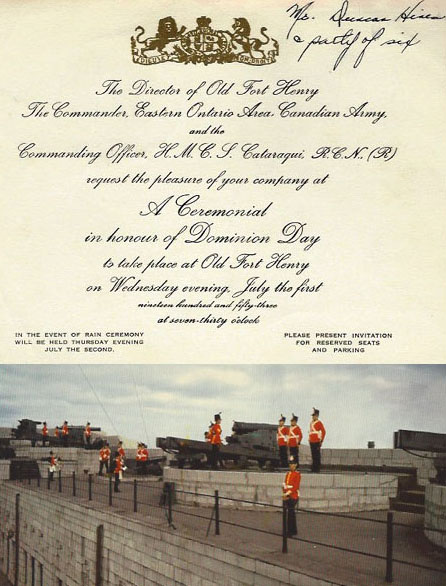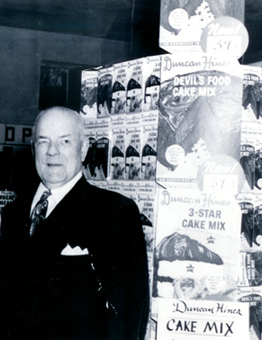With its official emblem and half-billion-dollar budget, the 150th anniversary celebration of Canadian Confederation will bring extra colour to this year’s July 1 Canada Day holiday. But in 1953, with the country yet to reach its 100th year, observance of Dominion Day (as it was then called) was not centrally orchestrated, and communities put their own unique stamp on the occasion.
That summer, Clara Hines and her husband Duncan Hines, author of the popular restaurant and hotel guidebooks Adventures in Good Eating, Lodging for a Night and Adventures in Good Cooking, left their Bowling Green home for a series of business meetings, interviews and promotional appearances in Ontario and Quebec. As might be expected, they were eager to try the local cuisine. They found a favorite in Montreal’s Cafe Martin, where, Clara wrote in her diary, the manager “was overcome when we left and Duncan gave him his card.” Clara’s other passion was shopping. Between meals, her exploration of local antique stores and her visits to the iconic Canadian department stores Eaton’s and Simpson’s took up more space in her diary than the usual tourist-style narratives.
On July 1, 1953, Clara and Duncan were invited to Dominion Day activities at Old Fort Henry in Kingston, Ontario. Situated on the St. Lawrence River at the eastern end of Lake Ontario, Kingston was of vital strategic importance during the War of 1812 and the fort had been erected to repulse an American attack. Accordingly, martial themes predominated during that day’s celebration of Canada’s 1867 act of Confederation. “It was all a military show,” wrote Clara, “& they used the original drills of 1867 & the original uniforms and artillery.” The demonstration of military tactics from the era included a mock battle with a gunboat and fireworks. “This was all quite interesting,” was Clara’s assessment, “and something we are not likely to see again.”
Clara Hines’s diaries,which include a record of her three trips to Canada, are part of the Manuscripts & Folklife Archives of WKU’s Department of Library Special Collections. Click here for a finding aid. For other collections with a Canadian connection, search TopSCHOLAR and KenCat.


